To the students, families and staff at Tumbler Ridge Secondary School and the community of Tumbler Ridge as a whole, our hearts are with you. We know that you are dealing with unbearable shock, grief and anguish. No one should have to face such a horrendous tragedy. No students should have to go to school worried for their safety; no parents should have to send their children off to school worried about whether they will come home and no teacher, support staff or administrator should have to worry about a shooting and the loss of lives at their school. We’re thinking of you, standing with you and sending our deepest condolences and unwavering support.
Category: News
IPE/BC is an independent, non-partisan organization, however we recognize that IPE/BC Associates and guest authors hold a range of views and interests relative to public schools, education issues, and the political landscape in BC. Perspectives is an opportunity for Associates and others to share their ideas in short, accessible essays.
B.C.’s School Boards matter, but only if they act like it
December 14, 2025
By Patti Bacchus
With elected school boards under threat in Ontario, it is more important than ever for B.C.’s boards to demonstrate their relevance by engaging meaningfully with their communities and stakeholders.
Elected school boards are already gone in Nova Scotia, Quebec (where francophone boards were replaced, though anglophone boards remain), and Newfoundland and Labrador. Their elimination is part of a troubling trend toward increasingly centralized control of public education.
 In British Columbia, Education Minister Lisa Beare flexed her ministerial muscles shortly after her appointment by firing the elected Greater Victoria School Board and replacing it with a sole administrator. The board’s offence? Ending its police officer liaison program — a decision made after a lengthy public consultation and formal decision-making process, but one the minister appears to have disagreed with nonetheless.
In British Columbia, Education Minister Lisa Beare flexed her ministerial muscles shortly after her appointment by firing the elected Greater Victoria School Board and replacing it with a sole administrator. The board’s offence? Ending its police officer liaison program — a decision made after a lengthy public consultation and formal decision-making process, but one the minister appears to have disagreed with nonetheless.
I firmly believe that locally elected school boards are essential to a strong public education system — but only if trustees understand their governance role and lead collaboratively, transparently, and with authentic community engagement.
Unfortunately, I’ve seen that commitment erode in my own district, Vancouver. The Vancouver School Board now bars the public from attending standing committee meetings, upending decades of practice. It’s unclear what problem this change is meant to solve — the meetings are already livestreamed. Perhaps some trustees are simply uncomfortable with members of the public sharing the same physical space. The board has even begun forbidding photography and recordings during public meetings, another break from long-standing norms. For what purpose?
As the Vancouver School Board’s longest-serving chair, and as a former DPAC representative, I know how critical open committee meetings are to meaningful engagement and community-building.
But this isn’t about me. It’s about the survival of local democracy—and convincing the public that elected school boards are worth keeping. That case becomes very hard to make when people are made to feel unwelcome in meeting rooms, or are scolded or threatened for something as innocuous as taking a photo at a public meeting.
Even registering to speak to trustees has become a convoluted, bureaucracy-laden process that could be — and was — far simpler. What is the point of locally elected trustees if they go out of their way to make it difficult for the very people they serve to engage with them?
This problem isn’t unique to Vancouver or even to B.C. In The State of the System: A Reality Check on Canada’s Schools, Nova Scotia education writer and commentator Paul Bennett examines the evolution of school governance across Canada. He argues that “our public schools, initially established as the vanguard of universal, accessible, free education, have lost their way and become largely unresponsive to the public they still claim to serve.”
I don’t always agree with Bennett, but on this point he’s right in some cases.
Later in the book, Bennett observes that trustees are often treated as though they should “behave much like children in grade school, focus narrowly on policy, avoid administrative matters, keep their distance from local groups, respect rigid board solidarity, and act primarily as goodwill ambassadors.” This culture, he argues, cuts boards off from the communities they are meant to represent — and he identifies it as one of the factors that led to the elimination of elected trustees in Nova Scotia.
We should learn from that.
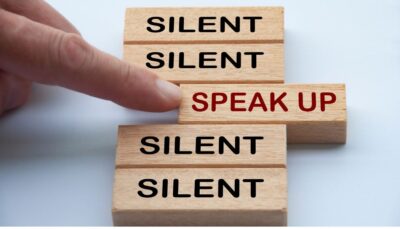 I frequently hear from newly elected trustees that they’ve been advised by senior management or their provincial organization not to speak to the media or engage with the public on social media. Good grief. What is the point of local government if local elected officials are discouraged from talking to the locals?
I frequently hear from newly elected trustees that they’ve been advised by senior management or their provincial organization not to speak to the media or engage with the public on social media. Good grief. What is the point of local government if local elected officials are discouraged from talking to the locals?
As an education columnist, I regularly contacted individual trustees for comment. Some told me they were “not allowed” to speak to journalists, because only the chair could do so. While it’s true that chairs speak on behalf of boards, individual trustees are also elected officials. They can— and should —speak publicly, provided they are clear they are not speaking for the board. Accountability demands open communication.
New trustees are also warned not to meet with community groups or individuals — especially union representatives — unless the entire board is present. That’s pure balderdash. The very purpose of local government is local contact. This siege mentality frustrates the public and, over time, risks breeding public indifference — making it far easier for governments to abolish school boards altogether with minimal public pushback.
Make the Most of a Whittled-Down Role
I served as a school trustee for eight years, without regrets. I worked with a strong caucus, and together we accomplished important work. We held the public’s ground against relentless pressure to close schools and sell valuable public land. We successfully negotiated hundreds of millions of dollars for new schools and seismic upgrades.
We developed a model for incorporating purpose-built childcare centres into new and rebuilt schools. We launched a Mandarin bilingual program, opened an Indigenous-focused school, and expanded early literacy intervention.
Yes, the trustee role is diminished from what it once was. Trustees can no longer levy taxes, and most collective bargaining now happens provincially. Still, I believe passionately that school boards can — and should — be among our most democratic institutions, precisely because they are closest to local values and concerns.
Outside of small-town city councils, there are few places where grassroots movements should be able to have more influence than at a local school board.
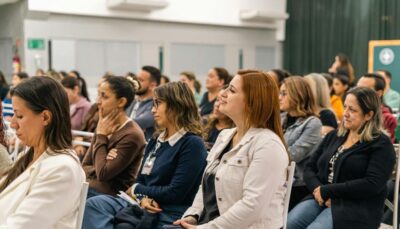 Vibrant, effective boards, where debate is encouraged, all voices are heard, and access to trustees is open, are a vital component of a high-functioning public education system. By most measures, Canada’s public schools are remarkably successful, delivering strong outcomes for the public investment they receive. Do school boards contribute to that success? I believe they do, at least in some cases.
Vibrant, effective boards, where debate is encouraged, all voices are heard, and access to trustees is open, are a vital component of a high-functioning public education system. By most measures, Canada’s public schools are remarkably successful, delivering strong outcomes for the public investment they receive. Do school boards contribute to that success? I believe they do, at least in some cases.
Yet many B.C. school boards are moving in the opposite direction. Restrictive codes of conduct muzzle trustees. Barriers discourage public participation. Boards increasingly take direction from management, rather than exercising independent governance. Too much of the public’s business— because school board business is the public’s business —takes place behind closed doors or in private emails instead of in public meetings, where it belongs.
B.C. school boards need to give themselves a hard shake. They must decide whether they want to do the hard but essential work of transparently representing the public — or continue fussing over decorum and control as they inch toward irrelevance.
I hope they choose the former. I fear many will continue with the latter, and we will all be poorer for it — especially students.
School board elections are next fall. Ask candidates to commit to open meetings with open public galleries, and to making public participation easy, not burdensome. Ask whether they understand how to use the trustee role to improve educational opportunities for all students — not simply to rubber-stamp management recommendations.
If you don’t want to listen to the public, or keep communication open, accessible, and respectful, then running for school trustee may not be for you.
School boards matter. Strong public schools depend on them. Don’t squander them by electing ineffective—or inaccessible—trustees.
Patti Bacchus is a former education columnist and is the Vancouver School Board’s longest-serving chair (2008-2014). She sits on the board of the Institute for Public Education (BC).
Thank you very much to Kim Block, Chairperson, Board of Directors, BCEdAccess, for granting IPE/BC permission to reprint this incredibly powerful post on the state of inclusion in BC’s public schools. We deeply admire and appreciate the work of BCEdAccess; an organization has been supporting parents of students with disabilities and complex learners since 2014. Find out more about BCEdAccess here and contact your MLA to call for well-supported, properly funded, meaningful inclusion in BC’s public schools.
By Kim Block, BCEdAccess
October 18, 2025
Trigger warning: Children’s Self-harm, mental and emotional distress.
The division of resources in society is a political decision. When resources become scarce in education, students with disabilities and diverse abilities are severely impacted. Impacts that last a lifetime.
The Ministry of Education and Child Care has the obligation to provide every child with a quality, equitable education. They defer this responsibility to school districts. School districts blame the Ministry for not providing them with the funding, policy structure, employment agreements and resources to be able to deliver quality, equitable education to all students.
School districts are incredibly underfunded. Children with disabilities are being pushed out of schools because of a lack of appropriate resources to support them. Many children are resorting to self-harm. They are experiencing increased anxiety and depression. They are dropping out or moving to online options. Parents are being forced to quit their jobs. By underfunding schools, we are creating a situation that forces people to be more dependent on other government systems.
BCEdAccess has already blogged about the impacts of scarcity in education titled “Scarcity in Education = Harmful Work & Learning Environments” .
We have many reactive systems in society. To receive a service at a hospital, you need to be sick first. To enter our criminal system, you need to commit a crime first. But our education system is designed to be preventative. It’s the one system that doesn’t wait for there to be a person in need of help. It should automatically provide a quality education for all children. They just need to show up. The reality is, the education system is now a reactive system. There are not enough resources for all children. Only responding to students’ disability-related needs when complaints are being filed or when intense advocacy by parents is being done. When resources are not there, students with disabilities are forced to leave school out of self-preservation and survival.
BCEdAccess has gathered testimonials from parents and guardians from our Facebook group. We thank the families for their emotional labour in sharing their experiences. I want to warn readers that these are heavy and intense experiences. What is consistent throughout these testimonials is that parents are overwhelmed by navigating a system that is harming their child. The impacts on their children are incredibly harmful. This is systemic oppression. When I read the testimonials and hear of the impacts, I wonder, how is this not emotional and mental abuse?
Children are self-harming due to the school environment. If they were self-harming due to their family environment, MFCD would be involved. But if this kind of trauma is occurring at school, it’s government-approved.
When these students become adults, their struggles with functioning in society will be blamed on them. Their struggles to find employment will be viewed as an individual character flaw. Not as society’s failure. Not as systemic oppression. Not as systemic abuse.
*********
“My daughter is quiet and non behavioural. She has never received support. She is diagnosed asd and LD. After grade 6 her confidence continued to drop and anxiety got worse. She turned to self harm and school refusal. Currently in grade 11 and 5 years of fighting the system only to continue to hear “we have kids throwing desks and our supports are thin.” I finally gave up and decided to home school.” – Anonymous parent
********
“Transition to high school. I learned at my child’s 15 minute iep meeting this week that none of his teachers are even aware he has a designation, and that it is up to me to tell them.
My son harmed himself for the first time due to the stress school start up has caused. He also wants to drop out and is in distress daily. So am I. We both feel exhausted and lost. The support block as mentioned above is not working for the same reasons. It is so frustrating. I told the learning suppprt staff this at the IEP meeting and they said we might have to enforce it? But how? No one has followed up since. It’s just so frustrating and exhausting. We seem to slip between the cracks deeper and deeper each year. A psych ed was recommended for last year but I continue to be told he is “low priority” and it’s pretty clear it isn’t gonna happen.” – Anonymous parent
“My son is in grade 10, the school is enjoying use of the funding, but doing nothing to set him up for success. He has attended 4 hrs this year and the counselor has checked in once and the autism-program-specific-teacher has checked in once. We’ve never had an IEP meeting in 3 years. Backdated IEP-like documents and literally blank progress reports were nefariously uploaded to parent connect after an audit, but the substance of them did not apply to my son and also included an incorrect diagnosis. The very basic common sense best practices for working with neurodivergent people are absent in the autism-specific program in our district. My son has become so anxious and depressed that he’s nearly stopped eating and has lost 10lbs this month – he was slender and had fallen off his growth curve in the first place. The doctors keep asking us “what is the school doing??” —nothing!“– Anonymous parent
*********
“September start up was one of the worst we have had so far. My daughter had lost all of her trusted adults at school due to layoffs and was expected to start with all new staff as our district believes that students should be able to work with anyone. This was so stressful and triggered some of the worst anxiety of have ever seen in my child and zero support from out district, we had no other choice but to enrol in online learning . Since our district doesn’t even offer online learning anymore, we had to switch out of our district completely so my child could receive proper adaptations and support supports. Not only has this affected her mental health, but it has taken a toll on our family in general as I have had to leave my job so I can support her with online learning, leaving us with only one income.” – Anonymous parent
********
“My 5-year-old son has Type 1 diabetes and has been asked by school not to attend school for more than two hours a day because there’s no one trained or available to safely support his medical needs. The isolation has been devastating for him and for us. Every day he’s reminded that his disability means exclusion, not inclusion. We’ve been told his safety can’t be guaranteed, so access to education has become conditional. It’s exhausting to keep explaining that my child’s right to be at school safely, equitably, and fully included is a human right, not an optional service.” – Anonymous parent
********
“My five-year-old son is receiving 3–4 different EA supports in a single day because the school hasn’t been able to figure out consistent support. When he does have assistance in class, that support is shared with two other children who require more intensive help, leaving my son with even less support. At lunch and recess, he has no supervision at all — which has already resulted in him running off the field once. I later found out that, instead of addressing this properly, the school placed him in a sectioned-off area where he couldn’t access the rest of the playground. To me, this feels like segregation rather than inclusion — the opposite of what schools are supposed to practice. Thinking that this might be our journey for the next 12 years is overwhelming.” – Anonymous parent
*******
“My child has suffered in self-esteem, self-determinism, and mental health concerns. They also hate school. Because of teacher attitudes, they now think that they won’t be able to have a good, well-paying career and also feel very ashamed of their diagnosis. They’re also a lot more cynical towards thinking people will help them and not judge them. The insistence on having Grade 9’a immediately start to self-advocate, when they already have school-related anxiety, is ridiculous. My child feels embarrassed every time they have to remind teachers in front of other students of their accommodations, which is quite frequent, and many times they just give up. My child (and I) has had to battle with teachers to get their accommodations allowed, and the accommodations are quite simple (more time on tests, able to work in quiet space if needed, body breaks, etc). I’m worried that my child may hurt themselves, might drop out of school, and/or never be motivated to find work that they are good and enjoy, BECAUSE of how the school system, high school in particular, has treated them.” – Anonymous parent
********
“A lack of resources landed my child alone in a locked storage closet (without my knowledge or consent!).” – Anonymous parent
*******
“Transitioning into middle school, the model is completely different. The support we had access to in elementary school for sensory regulation for my G designated child with learning disability doesn’t exist in his current school. They have an academic support block that doesn’t work for a demand avoidant kiddo with ADHD. We had an early IEP meeting with the school counsellor, but so far none of our requests have been supported due to our child not needing “intensive supports”, but he’s at high risk for dropping out of school already– he missed all last week and now we’ve found out the one contact we had that my son felt connected to, this specific counsellor is leaving and I have to meet again with his new case manager and get everything going again and repeat all advocacy- but nothing has been put into place anyways due to lack of supports. It’s so frustrating- around and around just to be told there’s no access/support/body to help.” – Anonymous parent
********
“A 16 year old child who was non-behavioural with learning disabilities received little to no support in middle school and is now majorly struggling with school, has about a grade 4 math level, has major anxiety and easily overwhelmed. Is struggling with mental health issues and on the verge of being a drop out due to school avoidance. Due to them being non-behavioural, no addiction issues, they don’t qualify for an alt school and can’t handle regular school.” – Anonymous parent
*******
“My child has zero supports in the classroom. Unable to read and write, there is no support for him to even write his name on his paper in grade 2. I collect his papers and work through them with him in the evening. We are exhausted, we are stretched so thin. My child is aware he is behind, and his confidence and self esteem is non existent and is now refusing school because of the lack of support and connection. Designation, flight risk, and psych ed incoming.” – Anonymous parent
*********
“My son started high school, gr. 9 last Sept. He was only allowed to attend a total of 19 full days between Sept-Jan. Because of his needs, specifically his learning disabilities, that were not being met-they refused any support or accommodations unless he was confined to the Learning Resource Room for his allowed 2-3 hours a day. No class time or instruction allowed. In late January after an incident with another student who was bullying him, he was not allowed to return at all. We were given the option of online which is not realistic for him, or to attend an alternative school for troubled youth. My son now works full time at 15 and says he lost his childhood because of not being allowed to go to school like other kids-this was his school story for the last 4yrs. He knows he will likely have to wait until he’s 18 to do any schooling now. Our child not being allowed to attend and everything else that has gone into trying to work with people who don’t seem to care at school has caused significant trauma, impacted our mental health, emotional health, my physical health has taken a hit due to the stress and financially…Well can’t make money to support your family when your constantly called away from work or have to be available to pick up/drop off for the couple hours a day your child is allowed to attend.
It’s ruined my faith in systems meant to support our children.” – Anonymous parent
*********
“My guy went from bell to bell support g designation in grade 8 to 0 support in grade 9. Nothing academic is done with him anymore.” – Anonymous parent
*********
“No functioning laptop at school has prevented my son from familiarizing himself with Google classroom materials when he’s at home (where he feels safe). I’ve had to purchase a laptop for him. Note: my son is at home doing online courses. He cannot do this without supervision so I can’t work.” – Anonymous parent
********
“Never having the proper EA support, has resulted in a kid that lacks confidence, thinks they’re stupid, and hates school. Major anxiety around school.” – Anonymous parent
******
“My Grade 6 daughter’s mild diagnosis has escalated to fight-or-flight violence due to accomodations not being used. Daily exclusion in sensory room or back room. I am not sure she is learning anything. She has been sent home causing financial loss to me as a single working mom.” – Anonymous parent
********
“……an undiagnosed invisible disability for my youngest and more lack of support, three years behind at school, accused of being lazy and not trying hard enough, resulted in unjustly removed and attempted suicide in effort to get help.
********
When is it going to be enough?
These are innocent children. They haven’t done anything wrong. Disability is a natural part of human variation. They don’t deserve this. Their families don’t deserve this either.
What has to happen for the government to realize that not properly funding an equitable education system is doing way more damage to society and creating more dependency on all systems in the future?
Not funding an education system is systemic oppression for a chosen group of people. I think this is systemic abuse. These are human rights violations.
We can change this.
So what can we do?
Parents, if your children are being negatively impacted by the lack of resources and support in the school system, I encourage you to tell your story to the BC Human Rights Commissioner. Their office welcomes with open arms the stories of people with lived experience. They use people’s experiences as a way to guide and shape their work.
The reality is that advocacy will always fall on us to bring awareness to the issues we are facing. Like it or not, people with privilege wouldn’t be able to guess this stuff, even if they wanted to. It’s too far out of their scope.
I cannot tell you the number of times people in government have told me, “Kim, if it’s as bad as what you say it is, we would see more people filing complaints.” We need to muster whatever energy we have left and write that email to the BC Human Rights Commissioner. It doesn’t need to be perfect. Don’t worry about rambling. Just spill it all out. If you are aware of someone in your life who you think needs to have their story told, sit with them. Offer to type it out in an email while they talk it out. Be the ally. Support them in speaking their truth.
Send it in. Subject heading: Speaking my truth – We need help.
I can’t tell you how many parents are advocating and doing what they do because they never want anyone else’s child to experience what theirs did.
You are powerful. And your children are worth it. And other people’s children are worth it too.
If you are an ally, please write to your MLA. We need all the support we can get.
IPE/BC is an independent, non-partisan organization, however we recognize that IPE/BC Associates and guest authors hold a range of views and interests relative to public schools, education issues, and the political landscape in BC. Perspectives is an opportunity for Associates and others to share their ideas in short, accessible essays.
Education Assistants play a critical role in inclusion
September 12, 2025
By Kirsten Daub
When people think about education assistants, they often picture someone giving a student some extra help with math or reading. And while that is certainly part of what an EA does, their role encompasses so much more.
In every classroom across British Columbia, education assistants play a critical role in ensuring all students get access to the quality public education. EAs ensure that all kids – including kids with diverse learning abilities or disabilities – can have meaningfully access to public education in this province.
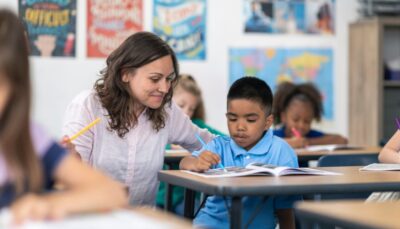 We know that not everyone learns the same way. Education professionals are adept at modifying curricula to suit a variety of learning styles and needs – Individual Education Plans (IEPs). But in a classroom with a large number and wide range of students, without an EA, teachers struggle to meet the learning needs of all their students.
We know that not everyone learns the same way. Education professionals are adept at modifying curricula to suit a variety of learning styles and needs – Individual Education Plans (IEPs). But in a classroom with a large number and wide range of students, without an EA, teachers struggle to meet the learning needs of all their students.
EAs play a vital role in understanding the unique needs of students, making their IEPs work in the classroom context, and working with teachers to modify IEPs to respond to the unique needs of a student.
But EAs work goes far beyond implementing personalized learning strategies.
Kids are small versions of adults whose brains are still developing and often haven’t yet learned how to constructively express their feelings. Kids with neurodevelopment differences may need extra help with communication, social interaction and behaviour. EAs are experts in understanding what students are communicating with their behaviour and responding to that student’s needs.
It’s easy to get frustrated when we don’t feel understood. For some kids, that frustration becomes behaviour that’s disruptive or harmful to others. EAs have the specialized training and expertise to understand behaviour, support students in communicating their needs, managing those needs, offering emotional support to help students feel confident in the classroom, and facilitating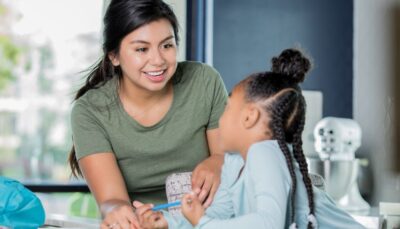 interaction with other students and encouraging friendships.
interaction with other students and encouraging friendships.
In short, EAs are the key to fostering a truly inclusive education system for all students.
In an ideal world, every student who needed one would have an education assistant assigned to them. This is not our current reality.
Instead, EAs are often assigned multiple students to support. I’ve spoken with EAs who support four or five different students in one day. They are frustrated that they can’t spend more time with students, and they see first- hand that a growing number of kids are not getting what they need to succeed in the classroom.
Kids are getting frustrated, acting out and giving up.
Without a consistent level of support, EAs just can’t keep up with the needs of the students who need them to meaningfully experience public education. And when students’ needs aren’t met, that can make the role of an EA harder to fulfill. This is leading to EAs report experiencing stress and burnout trying to do a nearly impossible job.
School Districts across B.C. often struggle to balance budgets. Cuts to support staff are often how those budgets are balanced. In spring of 2025, for example, the Surrey School District faced a $16-million-dollar deficit. Part of the District’s response was to cut fifty EA positions. This can only mean that students who rely on EAs will have less support, and EAs will be stretched even more.
 This is not a unique situation. School districts across the province need more funding to adequately staff classrooms. Many districts are struggling with recruitment of qualified EAs due to lack of hours and earning potential. As school districts make more cuts to balance budgets, the crucial work of EAs will become more unsuitable – EAs will suffer more burn out and leave the profession, and kid will have less support.
This is not a unique situation. School districts across the province need more funding to adequately staff classrooms. Many districts are struggling with recruitment of qualified EAs due to lack of hours and earning potential. As school districts make more cuts to balance budgets, the crucial work of EAs will become more unsuitable – EAs will suffer more burn out and leave the profession, and kid will have less support.
If B.C. is truly committed to inclusive public education, we need to make immediate and long-term investments. School operating grants as a percentage of the province’s GDP have decreased significantly since 1981.
We can do better for our kids.
Ensuring every student has the resources they need to succeed is an investment in stronger families, stronger communities and a better province. Most importantly, increased education public education spending is an investment in our kids – all our kids.
Kirsten Daub is member of the IPE/Board of Directors, the K-12 Sector Coordinator for the Canadian Union of Public Employees in British Columbia (CUPE BC Region) and a CUPE National Servicing Representative. Previously, Kirsten worked for over ten years for CoDevelopment Canada building international solidarity between unions and social justice organizations in Canada and Latin America.
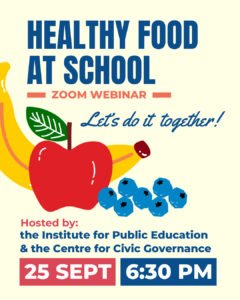 There is more to do to help kids have access to healthy food at school – let’s do it together.
There is more to do to help kids have access to healthy food at school – let’s do it together.
Please join the Coalition for Healthy Schools and school trustees from across the province to discuss how to help kids have access to healthy food at school and support the implementation of quality programs in every district.
September 25th at 6:30pm
Featuring Brent Mansfield (co-founder of Lunch Lab, founder of the BC Chapter of the Coalition for Healthy School Food and a Vancouver teacher) and Mark Robinson (Trustee for School District 68- Nanaimo Ladysmith).
IPE/BC is an independent, non-partisan organization, however we recognize that IPE/BC Associates and guest authors hold a range of views and interests relative to public schools, education issues, and the political landscape in BC. Perspectives is an opportunity for Associates and others to share their ideas in short, accessible essays.
Cost cutting dressed up as innovation? We have worries about hybrid learning.
August 28, 2025
By Moira Mackenzie, IPE/BC Board
The Surrey School Board made the decision to introduce a hybrid learning model for students in grades 10-12, establishing the option of a combination of online and in-person classes for students, as a pilot project for the 2025/26 school year. We can all recall when BC schools were closed and online learning was mandated as COVID was rapidly spreading in BC. At that time, this was a logical response to a very sudden, dangerous and widespread pandemic putting the lives of students, staff, and community members at risk. Online learning at that point was a well-meaning attempt to provide a safe learning alternative that would allow students to complete the year. However, the primary motivation for the decision to introduce a hybrid learning model this time has been well known and largely ignored by successive governments for many, many years. It’s based in the chronic underfunding of public education and the long term neglect of the pressing capital and operating needs in our public school system.
We know that the Surrey School Board among others has been actively lobbying for the district’s concerns to be addressed and we understand that, in the face of serious overcrowding, this decision may have felt less damaging than other responses. But we have concerns, both with the driving factors and the potential impacts, and we’re asking these questions:
- Will this decision alleviate the overcrowding?
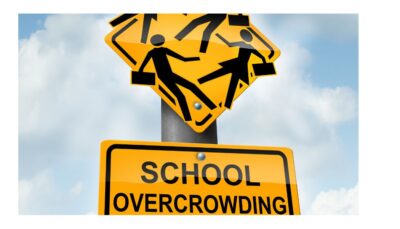 Surrey’s serious overcrowding issues span the district and all grade levels. It’s alarming that, in a number of cases, enrolment in their neighbourhood school has been cut off to neighbourhood children and youth. When the enrollment cut off hit the news two years ago, the response of the then Minister was to let parents/caregivers know that they would be able to find a school somewhere else in the district in which to enrol their children.[i] It was not a very reassuring reply given the size of the district, the impact on families’ lives and means, and the importance of connecting children and youth in their communities. Yet it served to illustrate how serious the problem was becoming.
Surrey’s serious overcrowding issues span the district and all grade levels. It’s alarming that, in a number of cases, enrolment in their neighbourhood school has been cut off to neighbourhood children and youth. When the enrollment cut off hit the news two years ago, the response of the then Minister was to let parents/caregivers know that they would be able to find a school somewhere else in the district in which to enrol their children.[i] It was not a very reassuring reply given the size of the district, the impact on families’ lives and means, and the importance of connecting children and youth in their communities. Yet it served to illustrate how serious the problem was becoming.
Furthermore, the decision on hybrid delivery could well backfire as it removes from the province the on-going pressure to adequately fund capital costs and match the building of new schools with rapid population growth. Surrey is not alone in facing these overcrowding challenges. It may well become an expectation that all boards trying to secure approval for much needed new school buildings and help with the cost of portable classrooms, will be told to change their delivery models instead. And, while students are given the choice at this time, will it be mandated in the future, especially if it doesn’t go far enough in addressing overcrowding as is almost certainly the case?
Surrey currently has some 400 portable classrooms across the district. [ii]This has been described as roughly the equivalent of 16 new schools. The Ministry’s rules require that the cost of portables along with their set up and relocation be taken from Board’s operating funds. [iii]Surrey has already had to make significant cuts to their operating budget, including cutting 50 EA positions, closing learning centres, and eliminating the grade seven band program. The funding of more desperately needed portables would inevitably have meant more cuts.
- Is this an educationally sound decision?
Unfortunately, as with many decisions in the field of education, the driver is not the educational benefit or the likelihood of enhancing student success. It’s first and foremost about dollars and cents. We have too often seen cost-cutting measures dressed up as innovation. If our public schools are expected to do all they can to support student learning and focus on continuous improvement, and rightfully so, then the primary rationale for change has to be that it is in the student’s best interest, not that it saves space and money. Would the board have adopted this approach had it not been faced with a budget crunch, a burgeoning student population and a severe provincial backlog in the funding of new schools? It’s not at all likely.
 We are not opposed to innovation- far from it! There have been countless educational decisions and innovations based on new understandings about how young people learn, how to support different learning styles and needs, and what values schools should reflect, to name just a few important drivers. Without the continual re-examination of teaching and learning, public schools would have been stuck in a time warp. However, we also have to think about the context for changes- while the expectations on schools have increased, the funding and support has declined. This is simply not sustainable, regardless of how much and how often the delivery model is changed.
We are not opposed to innovation- far from it! There have been countless educational decisions and innovations based on new understandings about how young people learn, how to support different learning styles and needs, and what values schools should reflect, to name just a few important drivers. Without the continual re-examination of teaching and learning, public schools would have been stuck in a time warp. However, we also have to think about the context for changes- while the expectations on schools have increased, the funding and support has declined. This is simply not sustainable, regardless of how much and how often the delivery model is changed.
- Will all students and their families/caregivers feel the impact equally?
At IPE/BC we believe that public education should provide students, regardless of their families’ means, with equal opportunities. It’s a fundamental reason for having a public education system and it’s in our collective interest as a society. We worry that this decision pre-supposes that all students have access to the necessary devices, appropriate learning spaces, readily available guidance and assistance, and more, and therefore all can consider the choice equally.
However, we know that, through no fault of their own, increasing numbers of parents/caregivers are struggling, doing their very best to cope with poverty, housing precarity, food insecurity, excessive work hours and multiple jobs, and much more. Online learning is not an equalizer; it shifts the responsibility for the educational environment and learning conditions onto parents/caregivers and underscores the growing gap in privilege and means in our society. Conversely public schools spaces help to mitigate these disparities and strive to provide equal opportunities.
- What might be the impact on student mental health and well-being?
The decline in mental health of children and youth is a grave concern here in BC and in other many other jurisdictions. The reasons  reported in studies vary and include isolation, social media and excessive time spent online, financial precarity and inequality, inadequate sleep levels, anxiety about climate change and other prevailing planetary issues, breakdown of community, and lack of supportive relationships. [iv] Public schools, combined with community supports, can certainly help turn this trend around when they have sufficient resources in place and students feel connected, valued and supported. We worry that increasing the time students spend online and away from the actual school community will work against their mental well-being.
reported in studies vary and include isolation, social media and excessive time spent online, financial precarity and inequality, inadequate sleep levels, anxiety about climate change and other prevailing planetary issues, breakdown of community, and lack of supportive relationships. [iv] Public schools, combined with community supports, can certainly help turn this trend around when they have sufficient resources in place and students feel connected, valued and supported. We worry that increasing the time students spend online and away from the actual school community will work against their mental well-being.
It’s also not lost on us that, when the school cell phone ban was mandated in BC, the rationale was that it would help keep students safe, supported and in school where they can learn and develop strong relationships. [v] Again, while the hybrid model is being offered as a choice at this point, will it become an expectation and work against the conditions that would otherwise support student wellness? And, will it also become a mandate expectation that takes the place of adequate education funding for in-school supports?
- Will this model help prepare students for the “real world” ahead?
Are we opposed to innovative projects and creative approaches in education? Certainly not! Innovation and resourcefulness are needed more than ever given the monumental issues our world is facing. But, so are the skills of learning to contribute within a community, engaging with others in person, forming positive relationships, collaborating and debating ideas, and understanding and valuing diversity. We think that is best achieved when learners come together in public schools and have the resources and support they need.
Yes, technology with the many options for online connections can be a very powerful, productive and engaging tool- one that can be effectively used for problem solving and learning. But we need to keep in mind that, whenever we hear it being said that young people need to learn how to cope in the “real world”, the speaker is inevitably projecting their biases and their vision of the real world, as if that vision was a universal truth, unalterable and the only choice. We have to step back and ask ourselves if today’s manifestation of a “real world” is something we want young people to replicate. Surely, we who have left monumental social issues, raging inequality, and the planet’s very survival to the real world to the next generations to solve should not be the one to declare what the real world for the next generation should be.
need to learn how to cope in the “real world”, the speaker is inevitably projecting their biases and their vision of the real world, as if that vision was a universal truth, unalterable and the only choice. We have to step back and ask ourselves if today’s manifestation of a “real world” is something we want young people to replicate. Surely, we who have left monumental social issues, raging inequality, and the planet’s very survival to the real world to the next generations to solve should not be the one to declare what the real world for the next generation should be.
Once again, we have to remember that this “solution” is being put forward in the context of budget shortfalls, years of cutbacks, and severely under-resourced public schools. We completely understand that boards are being driven to make decisions based on grossly inadequate funding; we know that trustees, parents, teachers, support staff, community members, and students themselves have been raising the concerns for many years. And, like them, we’re very worried for our public schools; they’re simply too important to our society a whole to be continually faced with losses. The situation in Surrey is but one example of a system under extreme pressure. It simply can’t continue.
[i] https://vancouver.citynews.ca/2024/03/20/surrey-schools-stop-enrolment/
[ii] https://globalnews.ca/news/11346020/surrey-portables-hybrid-remote-learning/
[iii] https://instituteforpubliceducation.org/wp-content/uploads/2025/01/Placing-a-Priority-on-Public-Education.pdf
[iv]https://crhesi.uwo.ca/new-report-on-mental-health-inequalities-in-canada-key-insights-and-tools/,
https://www.who.int/news-room/fact-sheets/detail/adolescent-mental-health
[v] https://www.cbc.ca/news/canada/british-columbia/eby-schools-cellphone-1.7306551
Moira Mackenzie is member of the IPE/BC Board and a retired teacher with many years of experience in the Surrey and Cariboo Chilcotin school districts and in supporting teachers and public education as a member of BCTF staff.
IPE/BC is an independent, non-partisan organization, however we recognize that IPE/BC Associates and guest authors hold a range of views and interests relative to public schools, education issues, and the political landscape in BC. Perspectives is an opportunity for Associates and others to share their ideas in short, accessible essays.
Not enough funding has cost me everything
Why BC’s inclusion model is failing—and how to fix it
August 25, 2025
By Anna Geeroms
As a Treasurer, I spent years poring over balance sheets, tracing every transaction until the truth revealed itself. When you stare that long at a general ledger, you start to notice not just the cost of doing something, but also the cost of inaction.
That’s where I am now with public education in British Columbia.
Because while school districts talk about affordability and prioritisation, I see something closer to structural negligence: the steady exclusion of children from classrooms and friendships; the erosion of trust between families and educators; the churn of staff leaving through burnout and moral injury; and the downstream costs absorbed—quietly, repeatedly—by hospitals, social workers, tribunals, and, devastatingly often, the justice system.
The worst part? The enthusiasm in Victoria. The press releases. The celebration of ‘historic’ incremental changes. But more funding, when it’s still not enough, doesn’t build equity. It buries families.
What happened to my son
Before kindergarten began, we told school clearly and carefully: our son had been harmed in daycare; he was on a waitlist for autism assessment; he will need full-day relational support to feel safe. They said many children adjust with time. They took a ‘wait and see’ approach.
 Within weeks, he stopped entering the classroom. They called us daily, threatening to call 911 if we didn’t come quickly enough.
Within weeks, he stopped entering the classroom. They called us daily, threatening to call 911 if we didn’t come quickly enough.
Eventually, a temporary support worker helped him feel safer—but her assignment ended. He unravelled. In a panic, he once lunged at the teacher strangling her to the pure horror of his astonished classmates. He was six. We were told he might be suspended.
He was eventually allowed back—for one hour a day, in a windowless room labelled ‘closet’ on the floor plan. My presence was required. He never returned to kindergarten class. Never rejoined his peers. Never brought home stories or art or anything like joy.
This is what happens when schools ‘wait and see’, instead of act.
And you would’ve thought that the strangling incident and autism diagnosis should have been enough evidence that he needed intensive and ongoing support, but that was just the beginning of having to fight every year, often multiple times a year to have support restored. Hardly a single school year started with support in place.
Inclusion isn’t happening—not really
British Columbia claims to embrace inclusive education, but what we offer in practice is often triage. Support is delayed until crisis. Staff are stretched thin. Children without formal diagnoses fall through the cracks. Parents fight for years to get their children diagnosed and then are told there are no resources to support them. Families feel like they are trapped in a cycle of bait and switch while our children are circling the drain.
stretched thin. Children without formal diagnoses fall through the cracks. Parents fight for years to get their children diagnosed and then are told there are no resources to support them. Families feel like they are trapped in a cycle of bait and switch while our children are circling the drain.
Thousands of children remain on waitlists for assessments. Others go months—or years—without the IEPs they need. In Vancouver alone, there’s a shortfall of over 100 Education Assistants. Province-wide, the average counsellor serves 693 students—almost triple the expert recommendation.
We have built a system that expects every child to cope—until they can’t.
What real inclusion requires
Inclusion isn’t ambient goodwill. It’s not vague optimism. It is a structure—concrete, visible, and adequately staffed. At minimum, it requires:
- Class sizes of no more than 18 students, so teachers can know and support each child
- At least one full-time Educational Assistant (EA) in every classroom, all day, every day
- Additional EAs where needed, so disabled children can remain with their peers instead of being separated to access help
- Resource teachers embedded in classroom life, not stretched across entire schools
- One counsellor for every 250 students, not 693
- Mandatory, ongoing professional development in trauma-informed, neurodiversity-affirming practices
- Calm rooms, sensory supports, and physical accessibility features that offer dignity—not containment
This is the floor, not the ceiling. Support must follow the child, flex with their needs, and never be withdrawn the moment they appear to cope. That’s not inclusion. That’s abandonment.
The cost of exclusion
I have spent years fighting—just to keep my children safe, just to keep them included. And that advocacy has cost me nearly everything: my home, my marriage, multiple job promotions, my mental and physical health. It has broken my heart in half more times than I can count.
I served on their Accessibility Committee—showed up, contributed to the plans, offered solutions grounded in both systems knowledge and lived experience. But over time, I came to believe those structures are unequipped to lead the change that’s needed. The very institutions that claim to champion inclusion are often the ones upholding the conditions that harm children. Repair cannot begin until they reckon with that contradiction—and until we lift the manufactured austerity driving the day-to-day reality of public education.
When we underfund inclusion, we don’t save money—we just move the bill. We shift the burden to emergency rooms, social workers, tribunals, and police. We destabilise families. We force mothers out of the workforce. We create manufactured crises out of preventable needs. We spend money on legal fees instead of educational salaries. We watch children become so overwhelmed and unsupported that they can no longer leave their rooms—and then we call that a mystery, instead of naming it for what it is: a failure of care.
 School exclusion is a pipeline. It begins the moment a child is made to feel that their presence is conditional—that they are too much. And it compounds: in anxiety, in early police contact, in fractured families, in long-term reliance on disability supports.
School exclusion is a pipeline. It begins the moment a child is made to feel that their presence is conditional—that they are too much. And it compounds: in anxiety, in early police contact, in fractured families, in long-term reliance on disability supports.
Meanwhile, companies like Microsoft and SAP are investing in neurodivergent talent. They recognise those minds as assets—if the environment is right. Public schools, by contrast, are spending public money to suppress the same traits. That’s not just unjust. It’s economically incoherent.
What will it cost to fix?
These changes require investment—real, ongoing, unapologetic investment. But they are not extravagant. They reflect what educators, advocates, and families have said for decades: that inclusion takes people, not promises. Staff time, not slogans. And the cost of avoiding it—of delaying, deferring, rationing—adds up faster than we admit.
It’s time to fund what we say we believe
When people ask what it would cost to end exclusion in BC schools, I no longer shrink the answer to fit the frame of political plausibility. I give them the real answer. Because the numbers are only part of the story. The rest lives in the child who curled up in the coatroom, the mother who broke down in a hallway, and the futures still being written—with every budget we pass, every threshold we enforce, and every support we choose to fund—or withhold.
About the author
Anna Geeroms is a neurodivergent solution architect and product owner with more than two decades of experience designing accessible digital systems in education, government, nonprofit, and justice sectors. She specialises in inclusive design and systemic transformation, blending technical expertise with lived experience. Her work explores how digital tools, public policy, and design practices can converge to build more just, accessible systems that hold complexity and uphold care.
She is the mother of twin AuDHD children, including one with a PDA profile who recently withdrew from Grade 7 following years of school-based trauma, delayed supports, and systemic neglect. And step-mother to a 23 year old studying fine art.
IPE/BC is an independent, non-partisan organization, however we recognize that IPE/BC Associates and guest authors hold a range of views and interests relative to public schools, education issues, and the political landscape in BC. Perspectives is an opportunity for Associates and others to share their ideas in short, accessible essays.
Denying the reality of education underfunding
August 3, 2025
By Moira Mackenzie
Gaslighting: a form of manipulation where someone is led to question their own reality, memory, or sanity, often by denying or misrepresenting events or situations.
Once again, prior to the end of June, BC’s school boards approved their budgets for the coming school year and, once again, faced with significant shortfalls, many districts have approved even more budget cuts. The persistent gap in funding, over many years and through governments of differing political stripes, has resulted in a public education system now under severe stress. We know that the staffing shortages, overcrowding, lack of sufficient funding for inclusion, dwindling supplies and program losses have already created deep cracks in what should be a strong, stable, accessible system that fully supports all students. If anything, the persistent and decades long denial of the needs and reality in our public schools begins to feel like gaslighting.
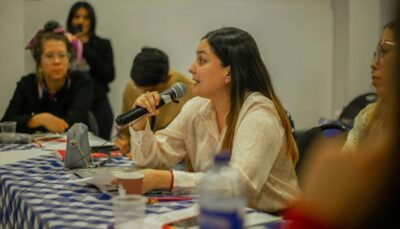 Parents/caregivers, support staff, teachers, trustees, advocacy organizations, and, in a number of cases, young people themselves are speaking out. They know well the impact of underfunding on student learning and well-being, and on the school community as a whole. They’ve been imploring the government to address the shortfalls, reverse the losses, and make public education a high priority. Their perspectives should be welcomed and respected.
Parents/caregivers, support staff, teachers, trustees, advocacy organizations, and, in a number of cases, young people themselves are speaking out. They know well the impact of underfunding on student learning and well-being, and on the school community as a whole. They’ve been imploring the government to address the shortfalls, reverse the losses, and make public education a high priority. Their perspectives should be welcomed and respected.
Yet, even as the pressure on public schools escalates, the responses from successive governments have changed very little over many years and, unfortunately, too often serve to dismiss the reality of all those directly connected with our valued public schools.
Let’s look at the prevailing and, unfortunately, enduring government messaging.
- These are tough decisions that boards have to make at the local level.
True, the decisions are excruciating, but it’s the province that controls the funding. When the actual needs of public schools and the complexities of supporting students aren’t adequately accounted for in the pot of money given to each board, the conditions inevitably deteriorate. As an example, while I applaud successive provincial governments that have advanced inclusion in public education, the funding falls far short of the support and services needed. In 2023/24 alone, there was a $340 million dollar shortfall between what the government provided and what school districts needed to spend on inclusive education.
The government transfers public tax dollars to school districts and boards are required to set their budgets within the funds they’re given or be subject to dismissal. It’s the provincial government dictates the size of the pie, regardless of whether it’s adequate, and boards are simply left to slice it up. We can safely conclude that no district would even consider cutbacks if the funding matched the costs.
given or be subject to dismissal. It’s the provincial government dictates the size of the pie, regardless of whether it’s adequate, and boards are simply left to slice it up. We can safely conclude that no district would even consider cutbacks if the funding matched the costs.
- Every student, no matter where their families live, receives the same level of support.
This messaging appears to answer a question that was not being asked. We can all agree that students, regardless of where their families live, should have access to quality, accessible, inclusive public education. It’s the level of funding that is the issue, not the location of the students.
- Education is receiving the highest funding ever. We’ve increased education dollars every year.
Of course, the education funding figure is the highest ever. Districts are primarily funded based on student enrollment numbers and, as we know, the student population in BC has increased significantly. The total number of K-12 public school students was 521,038 in 2014/15. Last year, public school enrolment in BC reached a historical high point of 614, 869.[ii]
In addition, it simply stands to reason that, with inflationary pressures and rising costs, more funding would be required just to deliver the  same services as the year before. It’s very likely that the dollars allocated to most, if not all government services, are the “highest ever.” But, in terms of per pupil spending in education, BC does not have a record to crow about. According to Stats Can updated figures for the year 2022 (latest available) BC ranked fourth from the bottom of the provinces and territories in dollars per pupil dedicated to public education. [iii]
same services as the year before. It’s very likely that the dollars allocated to most, if not all government services, are the “highest ever.” But, in terms of per pupil spending in education, BC does not have a record to crow about. According to Stats Can updated figures for the year 2022 (latest available) BC ranked fourth from the bottom of the provinces and territories in dollars per pupil dedicated to public education. [iii]
Further, it’s telling to look at the percentage of the gross provincial product being transferred to school districts to fund their operating costs. That is, how does the amount of tax dollars given in operating grants to school districts compare year over year as a percentage of Gross Provincial Product. In 2022, as reported by Stats Can the percentage going to education in BC was 3.0%, the second lowest among the provinces and territories in Canada. [iv]
Considered another way, for the 2023/24 school fiscal year, BC reported allocating grants totaling $6,754 billion across the province’s sixty school districts. If BC were to spend at the “% of GDP” rate that it did in back in the year 2000, this budgetary allocation would increase by $3.8 billion to $10.552 billion. [v]
- Our education system is doing very well. Wonderful things are happening in BC schools, our students continue to score highly on international exams and other jurisdictions are using the BC curriculum.
We agree- amazing things are happening in BC public schools and that’s entirely to the credit of teachers, support staff, parents, administrators, students and the school community overall. It’s not at all a sign that the funding matches the needs and it’s certainly not sustainable as pressures mount. And, when another jurisdiction choses to use the K-12 curriculum developed in BC through the hard work contributed by teams of BC teachers, they are not also endorsing the conditions under which it is being taught. These are two different realities.
- We’re in difficult and uncertain times. We can’t afford to boost education funding.

To that, I would say, we simply can’t afford not to. We know that quality, accessible, inclusive public education is key to a healthy democracy and thriving society. We believe that in dark and uncertain times, support for public education is all the more important. Today’s young people are growing up a world that’s facing incredibly complex problems and threatening conditions. Providing students with the skills, knowledge and supports to help them to not only cope but contribute in a meaningful way is more urgent than ever. It’s a sound investment in our collective future.
Further, at a time when public schools are in dire need, it’s impossible to justify the substantial sum of public tax dollars going to private schools. In 2024/25 alone the total was a whopping $570 million. [vi]
Just imagine the gaps that could be filled if these dollars stayed in the public system each year.
- Education funding isn’t a top priority for voters.
An additional and somewhat less public reason sometimes given for the funding crisis is that spending on public education is not identified as a top priority by a majority voters and therefore is not a “vote getter” issue. If this is so, it’s understandable. In contrast to healthcare, for example, the daily impact of education underfunding may not be as evident to individuals who don’t directly engage with the system. However public education truly is a foundational public service- a societal benefit that we can all rely on whether or not we’re directly connected to a school.
As chronic underfunding takes a bigger and bigger toll, a wise and long overdue move for government would be to invite feedback and learn from those who experience the pressures and tensions in public schools firsthand, rather than appearing, however inadvertently, to deny their reality. Gaslighting is a term that may occur to many who struggle to secure the services and support children and youth need. The broken record responses are doing no one any good; it’s really time they were traded for a much more meaningful dialogue.
[i] Beyond the Gap- https://instituteforpubliceducation.org/beyond-the-gap-the-need-for-accountable-education-funding-that-demonstrates-that-society-values-inclusion/
[ii] Government of BC – https://www.bcbudget.gov.bc.ca/2025/sp/pdf/ministry/educ.pdf and https://news.gov.bc.ca/releases/2015EDUC0051-001334
[iii] StatsCan tables 37-10-0064, 37-10-0065, 37-10-0007 and 37-10-0153
[iv] The Facts on Education Funding https://instituteforpubliceducation.org/wp-content/uploads/2024/07/BC-Education-Funding-Facts.pdf
[v] The Facts on Education Funding Facts- https://instituteforpubliceducation.org/wp-content/uploads/2024/07/BC-Education-Funding-Facts.pdf
[vi] Public Funds for Public Schools- https://instituteforpubliceducation.org/wp-content/uploads/2024/03/Public-Funds-for-Public-Schools.pdf
Moira Mackenzie is a member of the IPE/BC Board of Directors and retired educator. She taught for many years at the primary and intermediate levels, as well as in inclusive education as a Resource and Learning Assistance teacher. Moira also worked at the BCTF in professional issues and communications positions, and as the federation’s Executive Director.
For further reading on education funding:
BC school boards faced to make cuts; say they’re all out of Band-Aids
Increased public funding for private schools is dividing us and needs to stop
Is BC’s Education Underfunded and at a “Tipping Point”?
IPE/BC is an independent, non-partisan organization, however we recognize that IPE/BC Associates and guest authors hold a range of views and interests relative to public schools, education issues, and the political landscape in BC. Perspectives is an opportunity for Associates and others to share their ideas in short, accessible essays.
Public School Music Education Deserves a Standing Ovation – And More Funding
May 22, 2025
By Louise Herle
When people talk about ‘important school subjects’ music education is often treated like a tambourine: a necessary component of the concert but easily dismissed if not shaken with enthusiasm. At budget meetings music programs are too often first to be reduced or cut. When we consider music education superfluous, we disregard it at our peril. Fulsome music education programs contribute to sound foundational education curricula. Provincial governments – via their ministry of education and school boards – would be seen to better provide for students were they to ensure quality, fully-funded, free, and accessible music education, regardless of students’ postal code or their families’ household income.
- Music Makes Us Smarter
Research repeatedly shows that music education activates more brain areas in students than almost any other activity. Students use visual-spatial reasoning while reading music notes and engage fine motor skills while playing an instrument. When they learn to listen to music critically, they activate memory, pattern recognition, and math skills. Music education students also exhibit advanced language development and stronger executive functioning skills – like planning, organizing, following instructions and controlling inhibitions – essential skills for managing daily life. Music education strengthens working memory, cognitive flexibility (easily shift from one academic subject to another), self-monitoring (observe, evaluate and check work for errors) and task initiation (practice, avoid procrastination).
- Music Teaches Emotional Intelligence and Social Intelligence
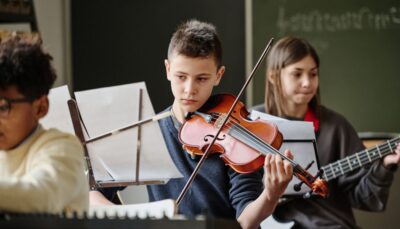 Music education allows students to access and express emotions that they may not otherwise have words or actions for. It helps them to manage their emotions. It also helps students to feel and to understand others’ emotions. When students play in an ensemble, they learn to listen – not simply hear – and they learn to wait for their turn. They learn to support others, and to create and enjoy the harmony that is realized in teamwork. These are life skills that make such students a better friend, partner, co-worker, and citizen. Music education has been shown to teach students to navigate social interactions and resolve conflicts in a positive way, to be more self-aware, and to be more empathetic. They read social cues and thrive.
Music education allows students to access and express emotions that they may not otherwise have words or actions for. It helps them to manage their emotions. It also helps students to feel and to understand others’ emotions. When students play in an ensemble, they learn to listen – not simply hear – and they learn to wait for their turn. They learn to support others, and to create and enjoy the harmony that is realized in teamwork. These are life skills that make such students a better friend, partner, co-worker, and citizen. Music education has been shown to teach students to navigate social interactions and resolve conflicts in a positive way, to be more self-aware, and to be more empathetic. They read social cues and thrive.
- Music Is a Group Project
In music ensembles every student plays a part; the tuba player matters just as much as the lead trumpet. The second violinist may not have the spotlight solo, but they sustain the harmony. The student who plays the triangle enhances the overall sound. Group music projects (writing songs, talent shows, forming bands) offer opportunities for creative expression, communication, and high morale. They foster collaboration, responsibility, and humility. No one can opt out without the whole group noticing. Teamwork and synergy rule.
- Yes, There Are Legitimate Careers in Music!
We have all heard the tired expression the ‘…starving artist”. Music education and the music industry offer vast career opportunities, from composition and performance to production, music therapy, technician, sound design, music scores for film, designing music festivals and concerts, repairing instruments, luthier. Music education students may also work as sound engineers, public relations industry experts or musician promoters. Musicians are lifelong learners; they develop transferable skills that employers seek: self discipline, creativity, time management, problem-solving, and public speaking to name a few. Life is richer with musicians, song writers, composers, conductors, music director, DJs, sound engineers, audio engineers, talent managers, booking agents, and teachers!
- Music Connects Us to Culture, History, and Each Other
Music education students develop an appreciation for a variety of cultures and histories by studying composers and international music.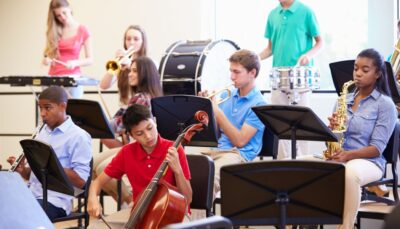 They study spirituals, protest songs and ballads that have been passed down through generations. Diverse styles such as jazz, classical, country, soul, singing, reggae, opera, folk, pop, rock, hip-hop, rhythm & blues, EDM (electronic dance music) are all part of a proper music education curriculum. These experiences show students who we are, where we have been, and who we can become. Music is a universal language; it transcends cultural and linguistic boundaries and connects us.
They study spirituals, protest songs and ballads that have been passed down through generations. Diverse styles such as jazz, classical, country, soul, singing, reggae, opera, folk, pop, rock, hip-hop, rhythm & blues, EDM (electronic dance music) are all part of a proper music education curriculum. These experiences show students who we are, where we have been, and who we can become. Music is a universal language; it transcends cultural and linguistic boundaries and connects us.
- Some Students Stay in School Only Because of Music Class
For many students, especially those who struggle academically or socially, music class is the reason they go to school. Music class is where they truly engage; they find their passion, their people, and their voice. They find meaning, humour and connection. Reducing or eliminating funding for music education potentially removes a lifeline. Music class inspires confidence and creates belonging. It offers students a chance to succeed outside sometimes rigid constructs of desks, keyboards, pens and paper. Schools with strong arts programs tend to have higher graduation rates, increased student attendance and increased positive community engagement (students practise instruments after school instead of hanging out in a mall). Music help students manage their stress. Since we believe that every student deserves their best opportunity to thrive and succeed, music education programs must be viewed as key components of the overall curriculum.
- Finale
A music teacher in BC public schools for 30 years, I worked at three schools in order to secure full-time status. I taught – and wrote report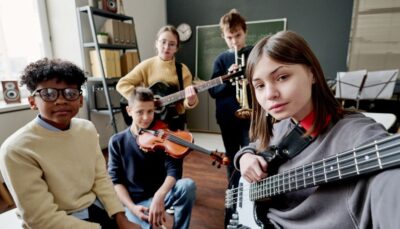 cards for – over 350 students, three times each year. I conducted five choirs, three bands and taught general Music K-grade seven. That meant three different staff meetings, innumerable parent-teacher meetings, eight festival entries and countless school concerts. My assigned ‘classrooms’ were school gyms, libraries and when lucky, portables. One school year, my meagre budget meant using fishing line to replace ukulele strings; a durable but not melodious remedy. Lunch ‘breaks’ were usually spent driving to the next school. Programs can devolve from quality to quantity; thirty minutes of music per week does not equate quality music education. Public school music education needs to be reconsidered as essential for brains, hearts, and our future, rather than a luxury or bonus that only students in private schools can access (look at a brochure for any private school and you will always see classes for stringed instruments and arts).
cards for – over 350 students, three times each year. I conducted five choirs, three bands and taught general Music K-grade seven. That meant three different staff meetings, innumerable parent-teacher meetings, eight festival entries and countless school concerts. My assigned ‘classrooms’ were school gyms, libraries and when lucky, portables. One school year, my meagre budget meant using fishing line to replace ukulele strings; a durable but not melodious remedy. Lunch ‘breaks’ were usually spent driving to the next school. Programs can devolve from quality to quantity; thirty minutes of music per week does not equate quality music education. Public school music education needs to be reconsidered as essential for brains, hearts, and our future, rather than a luxury or bonus that only students in private schools can access (look at a brochure for any private school and you will always see classes for stringed instruments and arts).
Louise Herle is a member of the Sunshine Coast Retired Teachers’ Association and the BCRTA where she currently serves on the Membership and Communications Committees. A graduate of University of Regina (Music), Université Laval, Québec (Linguistics), UBC (B.Ed) and Simon Fraser University (M.Ed), she taught grades K-12 and Adult Ed in Saskatchewan, Quebec and British Columbia. Louise worked on many BCTF committees and served as President, Sunshine Coast Teachers’ Association, for seven years. Louise enjoys teaching piano lessons, playing fiddle music with her grandfather’s violin in Celtic and Bluegrass groups, and playing her French Horn in a Community Orchestra.